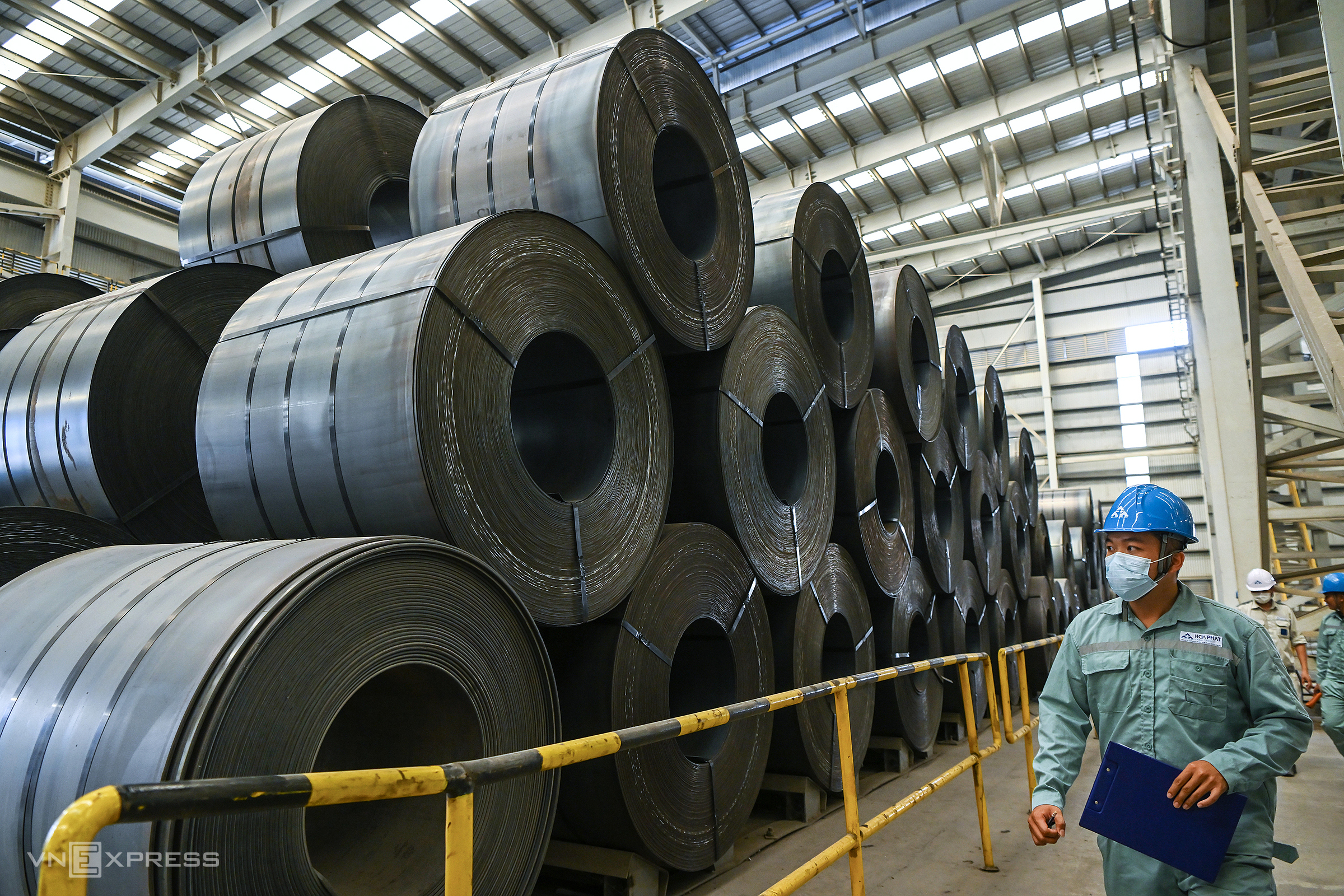This information was released by the Ministry of Industry and Trade's Trade Remedies Authority (TRA) at the "Trade Remedies Forum 2025" on 25/9. Since its establishment in 2017, the TRA has conducted 48 new investigations and reviewed 35 trade remedy measures.
As a result, the TRA has recommended the Ministry of Industry and Trade apply 36 trade remedies on imports, of which 20 are currently in effect. These measures generate approximately 1,600 billion Vietnamese dong in tax revenue annually.
TRA Director Luong Hoang Thai stated that amid global supply chain fluctuations, trade remedies such as anti-dumping, anti-subsidy, and safeguard duties help maintain a fair competitive environment, protecting the interests of businesses and workers.
 |
Hoa Phat Steel Plant in Dung Quat in 4/2024. Photo: Giang Huy |
Hoa Phat Steel Plant in Dung Quat in 4/2024. Photo: Giang Huy
The annual revenue of domestic manufacturers involved in trade remedy cases is estimated at nearly 600,000 billion Vietnamese dong, employing over 56,000 workers directly in the iron and steel, food, construction materials, chemicals, wood, fiber, and plastics sectors.
Nguyen Huu Truong Hung, Head of the TRA's Damage Investigation and Safeguard Department, cited the example of anti-dumping and anti-subsidy duties on cane sugar. These measures contributed to reducing sugar imports from 1.2 million tons in the 2020-2021 crop year to 300,000 tons in 2024-2025, improving domestic sugar prices and doubling production.
Similarly, in the steel industry, billet imports decreased from 1.6 million tons in 2015 to zero after a decade. "Trade remedies have protected key industries and are a measure implemented by other countries as well," Hung said.
Globally, economies are increasingly aware of utilizing trade remedies to protect key national industries. Le Si Giang, Director of GH Consults, citing WTO data, noted that the number of trade remedy cases has been trending upwards for the past 20 years, averaging over 200 cases annually in the 2000s and exceeding 450 cases last year.
In anti-dumping specifically, India leads the world with over 1,200 investigations launched, followed by the US (989 cases) and the EU (589 cases). Metals are the most frequently investigated product.
To continue effectively utilizing trade remedies against unfair competition and prevent Vietnam from becoming a dumping ground for surplus goods, the TRA urges businesses to proactively share information.
"Current cooperation is not high. There have been cases where businesses suffered losses to the point of closing factories but did not dare to file lawsuits for fear of revealing business secrets," Hung explained. Businesses also need to increase transparency in their accounting systems.
Le Viet, Vice President of the Vietnam Steel Association, supports strengthening the application of trade remedies to protect domestic production and ensure fair competition, especially in the context of global steel overcapacity.
Vu Van Thanh, General Director of Hoa Sen Group, suggested that in addition to tariff-based remedies, technical measures are needed to protect domestic production. For instance, it's necessary to quickly complete the system of standards and regulations for managing the quality of steel circulating in the Vietnamese market.
Experts also warn of the risk of foreign goods circumventing trade remedies by investing in factories in Vietnam to complete the final stages of production with low added value. This creates unequal competition and poses a risk of origin fraud when finished products are exported to other markets.
Chu Thang Trung, Deputy Director of the TRA, said they are monitoring this trend and will issue warnings when the production and export capacity of a certain group of goods suddenly increases due to FDI shifting to Vietnam.
Vien Thong.












